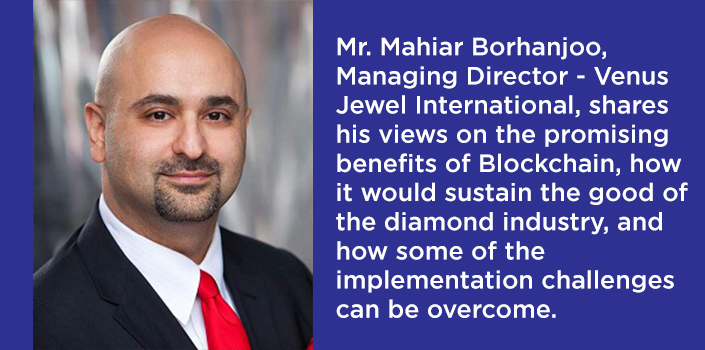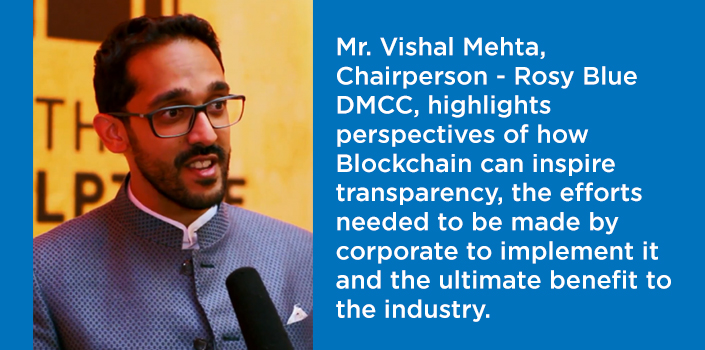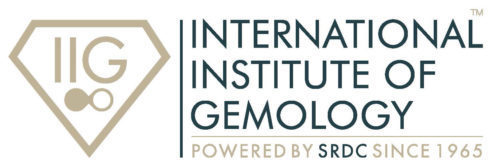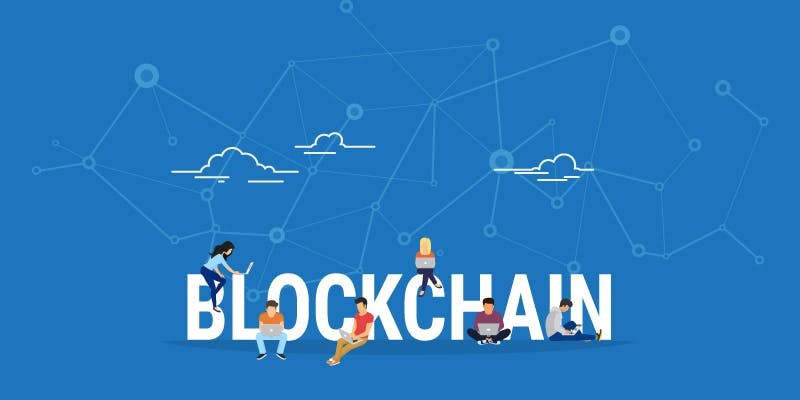If necessity is the mother of invention, Blockchain is maybe one such by-product.

Some Blockchain programs ensure complete traceability of a diamond from mines to retail stores – thereby tackling illicit trade of conflict diamonds, undisclosed mixing of synthetic diamonds with naturals, and supports in improving consumer confidence. When Blockchain did the rounds of the diamond industry we went out to gain a perspective of what it means to the trade. We shared some insights including De Beers’ pilot program Tracr – in our blog ‘Blockchain Diamonds – Boon or Bane’.
Tracr has won support in theory and practice. Some leading companies joined it. With a pilot already implemented, we now dig deeper to know the industry reaction to Blockchain. We speak one-on-one with two eminent personalities of companies who have participated in Tracr – Venus Jewel and Rosy Blue NV – to understand their response to Blockchain after Tracr.

The diamond industry bears a unique complex structure – varied stakeholders, global networking and organized/unorganized operations. Is it ready to take on Blockchain?
Mr. Mahiar Borhanjoo states, “Parts of the industry are. Many companies used to validate mining companies pricing from their systems they just have to find the right ways to incorporate that information and their security validation of the stones being polished to meet the requirements of Blockchain.”
But India is a mix of organized and unorganized players, what is needed for the industry to be more prepared for Blockchain?
Mr. Mahiar Borhanjoo: “Let us first agree that this mixture is in every part of the world, and is more pronounced in India because 9 out of 10 stones are being polished here. Furthermore, to answer your question, it can be – the challenges are the stars and melee stones, but again systems can be placed to help support such polishes. More and more retailers will start asking for this and when this need gets to a certain level, people will have no choice but to adapt. This will mean they need to be organized to track their goods.”
What hurdles of the industry can Blockchain resolve?
Mr. Mahiar Borhanjoo: “Some believe that consumers are demanding this information while others believe that it helps them sell to the consumer with confidence. But irrelevant of why providing a transparent and open system that allows consumers the ability to understand where their diamonds originated from is a good thing as it provides transparency and openness. It is also important to note that the high- end retailers are in need of this information as they have a mandate to ensure they are sourcing all their goods ethically and that no luxury product ever hurts and brings pain or suffering to anyone. So, to know the complete history of the stone through Blockchain, which is literally a block of un-editable information that is distributed as ledgers would securely and confidently allow the consumer or retailer to understand the complete history of their diamond.”
In your view how aware are consumers today about conflict diamonds? Who do you think will drive demand for Blockchain diamonds? Is it the millennial consumer?
Mr. Mahiar Borhanjoo: “I think we need to step away from that and focus on what consumers want. If a consumer wants to know where their coffee bean comes from, why would they not want to know this information about the most important first purchase in their lives? They do and will demand it in the future. So, let us be ahead of the curve and be transparent.”
Will Blockchain be an industry push or consumer pull?
Mr. Mahiar Borhanjoo: “A combination of both. It will be a consumer pull if we do not have it ready. If a consumer pull happens and we are not ready, then our industry will be hurt, because the consumer today has many options for their purchasing power and we must meet or exceed their needs before it becomes an issue for our industry.”
QUICK READ
Is the Indian Industry ready for Blockchain?
-Partially yes, the organized and sophisticated companies, yes, they are.
As a cutting and polishing center, how can the Indian industry be more prepared?
-Training and awareness, learning about what Blockchain is, and how to organize their systems and processes to follow a rough diamond to become a polished diamond. It first needs to pick up in international markets
How long would it be before Blockchain comes in actual demand?
– It is already there; Forevermark of De Beers uses it though Venus Jewel. Venus Jewel uses it in their mud (know your diamond). And recently Tiffany announced that they will do so by 2020.
What is the topmost benefit to the industry from Blockchain transparency?
Disclosure of synthetic and natural diamonds, finance sourcing, better corporate governance, consumer confidence, everything will matter.
Do you see Blockchain becoming a norm/standard for the industry?
Yes
Blockchain is a step ahead of certification. What is the demand for certification today in India on a scale of 1-10?
9

What brought you to join Tracr? Can you share some light on the ROI (Return on Investment) with Blockchain? How does the economics of it work?
Mr. Vishal Mehta: “Technology can be expensive, and one will have to check how to minimize cost. But one has to adopt best practices and to adopt that they need to learn, access, work on Blockchain. Tracr being De Beers’ initiative, De Beers understands the value of Blockchain to our industry. Most importantly to get traceability, making one understand the benefit of Blockchain. Rosy Blue accepted it because they found it interesting and beneficial to the organization.
Speaking of Return on Investment (ROI) on this technology, ROI will surely be high. Every new technology when it comes, obviously the cost of technology will be high, ROI will be less and slowly companies can find cheaper and a reliable source as per their own requirements and increase ROI too. The purpose what this technology can solve will be much more important than ROI and which will bring consumer confidence and finally that is a big ROI.
Talking about traceability through Blockchain to what extent are we making the information transparent?
Mr. Vishal Mehta: “We discuss selectively revealing data; one can selectively reveal some of the data – if a company finds it has any very special data like the cost of manufacturing tenure of cutting etc; it can hide that data. If some data is trade secret, they can hide it too but that can also work against Blockchain. The data that you share, that you want to share, does not mean you have to share all. You can choose to be selective, but then the limitation of Blockchain is that you will only get that selective data that is there. More transparent you are, the more others can get. Maybe we are in that time, where we have to be transparent to inspire confidence in the third party – people and trade both becoming relatively transparent inspires confidence.
Similarly, the more we share; hopefully, people will feel more confident in diamonds and be able to buy more.
How will Blockchain be managed? Do you require an entirely new division and set up? What about training and skillsets?
Mr. Vishal Mehta: “DNA of any company is education – some of them are doing so openly – training and upgrading their staff members for new technology, making them ready and some companies do so internally also. Venus Jewel has its own R&D center and data collection center where they store all data and which is also further analyzed and R&D will be done on them to get more information, future trend, etc.”
Will everyone creates their own systems or will they follow one industry standard?
Mr. Vishal Mehta: “Rosy Blue is very open about Blockchain internally. The DNA of the diamond industry is changing dramatically. The diamond industry is now extremely tech-friendly in the sense people have seen the benefits of adopting the technology. People are also inventing their own technology now; own R&D centers provided they see the benefit. Rosy Blue does it internally. But teaching the people outside is more likely the job of education centers or technology drivers or government or associations.”
Will Blockchain help consumers make better purchase decisions?
Mr. Vishal Mehta: “Rosy Blue is open for sharing information. They are very transparent. It is not only the good that we speak. Blockchain technology is a fantastic technology but at the same time, it has some limitations. So, we speak about that too.
Blockchain technology is a fantastic tool that works on traceability and transparency which is not a small issue. People always think it is a small issue but in 2003, the Kimberley Process was formed because the diamond industry faced many serious problems – in terms of consumer confidence – they were thinking what diamonds they are wearing might have blood diamonds and are not derived from the right source.
So, the moment you have an industry-wide confidence issue then we have to understand that building consumer confidence is paramount. Regardless of whatever happens, we have to ensure that what they are buying they are getting the right value. We assure they are getting diamonds that are conflict-free (non-conflict).
Any technology which demonstrates the problem and also helps in corrective measures should always be welcomed, which gives the customer confidence. If we are not building confidence in the diamond story and convincing them to buy diamonds, they will stop buying diamonds. Also, we can show what impact diamonds have on the community – the diamond industry giving jobs to half a million – the polishing community changing their lives not only for employment but on a larger scale – health, study for children, and entire community upliftment.
We have to continuously sell the diamond story but Blockchain can be a helping tool in the conversation. If you start to talk about the language of the buyer/person they are more likely to buy. Telling them it is traced by Blockchain. Millennials are very tech-savvy. When they see the diamond on Blockchain they connect more. It is also about presenting our story slightly differently.”
According to you how what will be the industry receptivity quotient towards Blockchain?
Mr. Vishal Mehta: “Always whenever new technology comes, very few industry leaders take the challenge and check. Adoption is by leaders then followers come. Challenge is if earlier people who started working in this field benefitted then only followers will adopt. Tiffany & Co and similar companies, if they ask for it then the adoption can be speedy. What is required is a positive outlook from retailers and everyone else to ask for Blockchain.”
What according to you will be the future of Blockchain?
Mr. Vishal Mehta: “Value propositions – traceability becomes very important. ‘A Decentralized ledger – one center verification element is an important factor is a traceability. One can learn of the Origin of rough, Sourced from an official channel or not, Polished in which country, Child labor, human rights issue, Basic inventory management, Service, Transparency – Decentralizing data. Slowly and gradually it is becoming necessary to learn and access new technology – Blockchain. In the future, Blockchain is also going to be a learning curve, whenever it comes, a new technology, a different technology – one needs to adopt.”
QUICK READ:
Is the Indian Industry ready for Blockchain?
-Partially yes, the organised and sophisticated companies, yes.
As a cutting and polishing center, how can the Indian industry be more prepared?
-With Training and spreading awareness, India to come forward as a leader.
How long would it be before Blockchain comes in actual demand?
Will take time.
What is the topmost benefit to the industry from Blockchain transparency?
Consumer Confidence.
Do you see Blockchain becoming a norm/standard for the industry?
Yes, over and above just a certification, maybe we have to combine it with certificates.
Blockchain is a step ahead of certification. What is the demand for certification today in India on a scale of 1-10.
9.

